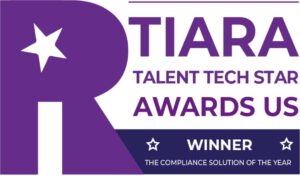Sustainability has become a buzzword in corporate circles. It can be defined as a set of practices that support the environmental, social, and economic needs of this generation without negatively impacting the next.
While some see sustainability as a mere trend, data shows that companies and their stakeholders benefit from adopting sustainability practices. These measures can not only help you stay compliant but also increase trust, inclusivity, and workplace safety.
Discover the importance of sustainability in your business and why it’s a critical investment.
Regulatory Compliance and Sustainability
Businesses in the United States have a legal obligation to adhere to regulations surrounding everything from waste management to energy efficiency. For example, the Resource Conservation and Recovery Act, governed by the U.S. Environmental Protection Agency, requires businesses to control how they produce and dispose of hazardous waste.
Non-compliance is not just a legal issue but a matter of responsibility toward the environment and community. Businesses that fail to adhere can face investigations, fines, and penalties, along with potential reputational damage.
It’s crucial for business leaders to understand that sustainable practices go beyond mere compliance. They are a proactive approach that can optimize resources, reduce costs, enhance workplace safety, and foster trust in senior management.
For HR leaders, building sustainable practices means aligning policies with that philosophy, employing technology to track and analyze compliance data and sustainability initiatives, and building a culture of continuous improvement. However, this isn’t just a task for the HR department.
Employees also have an important part to play. They must not only uphold company policies that promote sustainability but also alter their everyday practices. Though gestures like opting for digital files over paper copies can seem small, they contribute to an overall culture of sustainability throughout the organization.
Sustainable Employment Practices
To build organizations that value sustainability, business leaders must define it beyond just environmental health. Sustainability in employment practices is also a necessary piece of the puzzle, especially in a generation that expects organizations to be on board with environmental, social, and governance (ESG) frameworks that increase a company’s positive societal impact.
Sustainable and ethical considerations apply when organizations hire, set wages, promote, demote, and terminate employees. According to laws and regulations set out by the Equal Employment Opportunity Commission, discrimination on the basis of race, color, religion, sex, sexual orientation, national origin, age, disability, or genetic information is illegal.
The Occupational Safety and Health Administration requires employers to provide safe working conditions for employees. As with other regulations, a lack of compliance can lead to fines, penalties, and legal troubles.
Ignoring sustainable employment practices can also lead to problems in attracting and retaining talent. According to a survey by Handshake, 65% of Gen Z employees won’t apply to work at a company that doesn’t align with their values. Additionally, 56% prefer to work for employers that actively support social causes, 57% expect their employer to acknowledge social issues that affect employees, and 43% expect their employer to take a public stance on these issues.
“Making a positive social impact” is the definition of career success for 49% of Gen Z employees surveyed. Meeting this goal can contribute to increased morale, productivity, and engagement at work. It has become abundantly clear that, in this generation and the next, sustainability is vital for employers who want to maintain competitiveness.
Sustainability Reporting and Transparency
Merely complying with environmental laws isn’t enough. Company leaders must also strive to become transparent about their efforts with government agencies, investors, and the community at large.
Governments worldwide and in the U.S. are requiring more from companies in terms of ESG reporting. For example, the E.U.’s Corporate Sustainability Reporting Directive requires companies to report on the environmental and social impact of their activities and have those reports audited.
In the U.S., the SEC is requiring companies to disclose certain climate-related information in financial reports. Government entities are not the only ones asking for this reporting — 79% of investors consider ESG risks in their decision-making, and 49% would sell their investment if the company isn’t taking enough action.
Reporting is critical because your stakeholders care about your sustainability initiatives. Without this transparency, your company risks not only being found in non-compliance with regulatory agencies but also losing the trust of everyone else.
Looking to the Future of Sustainable Work
These trends suggest that as time marches on, sustainability will continue to grow in importance, both legislatively and in terms of overall social values. Data shows that 75% of Gen Z buyers prefer sustainable brands over those with recognizable names. Additionally, Gen Z is influencing the buying decisions of other generations.
With sustainability affecting everything from compliance to talent strategies to profit targets, your company may need to change the way it collects and reports data, including details about its supply chain and employee-related activity. Though these efforts require a long-term outlook, the shift in attitude of the next generation suggests that business growth heavily depends on the willingness to move in that direction.






